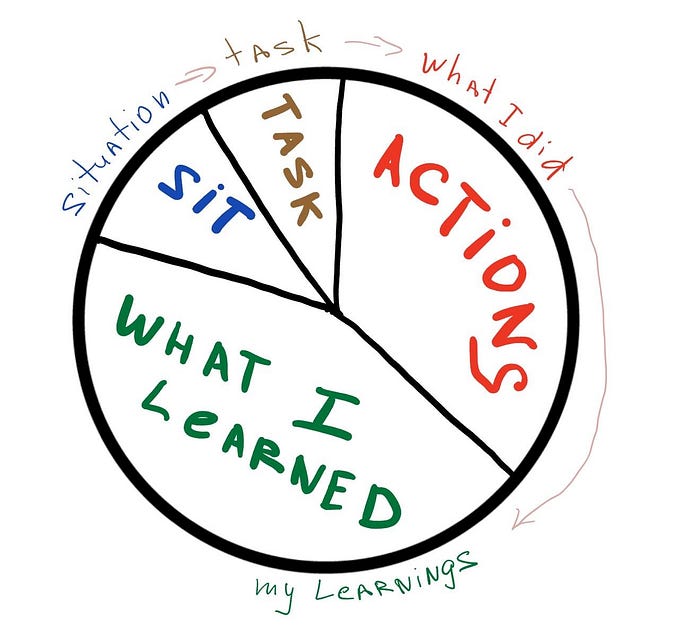9 Most Important Job Interview Red Flags For Recruiting Candidates

Regardless of how efficiently your recruitment team can generate talent, there is always a chance that the person behind the resume may not be a good fit for your organization. That’s why the job interview is, of course, such a critical part of the hiring process. But how do you say if a candidate’s a good fit or not? One way is to be conscious of some may job interview red flags which may mean an applicant is not as perfect as their curriculum makes them.
We’ll look at 9 job interview red flags in this article that you should be mindful of when interviewing applicants.
Common job interview red flags
It is important to have a clear vision of what type of candidate you are looking for, and the personality traits they will need to fit into your culture of the company. Having a clear view of what you are searching for will help you create your own red flags that are customized to your organization and objectives in a unique way.
Nonetheless, there are some universal red flags for interviews which might suggest bad things to come if you choose to recruit the candidate.
1. Bizarre body language
Body language during an interview helps recruiters understand the meaning or the reality behind the words. Saying one thing is not uncommon to a candidate, but then betray that statement by giving off contradictory body language. When you find contradictory words in the body, this may be an indication that the individual is not being real.
Generally speaking, you should look for things like eye contact deficit, slacked or over relaxed posture, or standoffish body language. All of these are potential signs of lack of trust, lack of professionalism or, respectively, negative attitude.
2. Rudeness or leniency
Likewise, how the candidate presents itself is a gigantic tell of how much they value this opportunity, and how seriously they might take the job. Being rude or dismissive towards the interviewer or other members of staff is clearly a red flag. Like a messy presentation, or tardiness without notifying you that they are going to be too late.
There is an expectation that during an interview, applicants will put their brightest, competent foot forward. If there is a clear lack of effort to look and act professionally, then that’s a red flag about how they would also act on the job.
3. Lack of passion for the job
Presumably, if a candidate takes the time to interview you, that means they are interested in the role, the product and the company with which they would be working. A good fit for the prospect of working with you will be noticeably excited and passionate. If they aren’t, then they may not want the job, or they may want it for the wrong reasons.
4. Lack of ownership
Deflecting responsibility, or making too many excuses in their career for past mistakes and hiccups is a clear red flag the interviewer should be aware of. Failure and learning are an integral part of your career growth, and a refusal to take ownership of what can be a negative sign of how that applicant will react to your company’s failure.
If your candidate faults former colleagues for mistakes or shortcomings in previous roles, or if they speak poorly about their previous boss, you will take note of that as an interviewer. Good candidates should take ownership of their history and be able to explain explicitly how they learned, and how things will change in the future.
5. Neither asking any questions
Interviews are intended to be dialogue. For the recruiter or hiring manager and the candidate, they are an opportunity to feel each other out to see if it is a mutually good fit. A large part of this discussion is the applicant who asks questions about the organization, the job, the team, and the responsibility.
If your candidate is not asking any questions during an interview, then it is a good sign that either they are not really interested in the role, they have not done their homework or they have not listened. But be vigilant. This is a well-known interview with the red flag job, so candidates may ask a list of questions just to avoid that error. Make sure you’re listening to what the candidate asks, and whether the questions are insightful and relevant to the discussion you just had.
6. Being unprepared
Maybe a candidate who shows up to a distinctly unprepared interview is more concerned than asking no questions. If the applicant does not seem to have at least a basic understanding of the job, your business, or what you are doing, then it is a clear red flag that they have not enjoyed this opportunity to do their homework enough.
Being prepared means the applicant should be on time, they should have been studying your company and the position, and they came prepared with insightful questions. Asking pointed questions about your business or future obligations in an interview is a good way to identify if this red flag is there.
7. Complaining
The attitude and reverence of the candidate towards his previous employers is often an indication of their general attitude towards work. Whether they complain or clamor openly about their former colleagues, this should be taken as a red flag of how they would communicate with your company.
Certain negative feedback is not unexpected, of course, and could offer good insights into how that person handles difficult situations with people. Pay attention to how the nominee gives negative feedback on their previous business and how they handled it.
8. No listening skills
During an interview, a candidate is supposed to be involved as much as possible. Which means they are paying attention to what is being said and engaged in a conversation back and forth. Candidates who constantly forget what has been said, or have to ask for clarification or reinforcement of fundamental points, may not have the best listening skills.
Worse, poor listening skills are a good indicator of the candidate paying little attention to detail, which could turn into workplace issues.
9. Can’t explain their earlier work
Finally, it makes sense for an applicant to be able to explain in depth what they have done in a previous job, and how it applies to their role in your company. Failure to do either could be an indication that they are not paying attention at work, or they were not engaged enough to see how it relates to your business.
Learning the red flags job interview is one thing but sometimes it can be hard to find them. To aid, we have put together four tips on how to spot red flags on candidates.
Conclusion
Sometimes interview red flags will be so obvious that they can not be missed. Other times they could be subtle and hard to spot on the fly. It is necessary to consciously use certain repeatable strategies during your interview to help with this.










